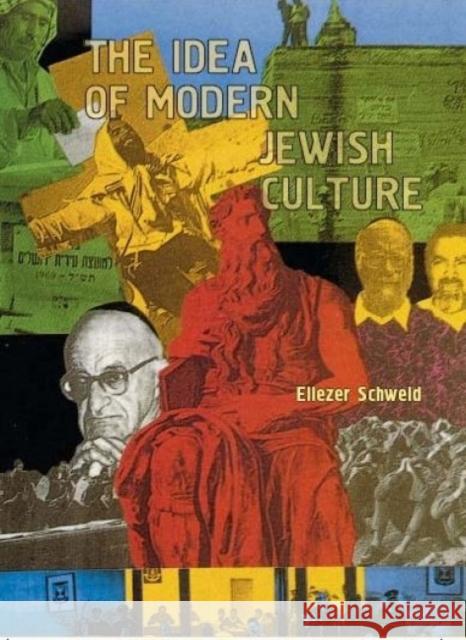The Idea of Modern Jewish Culture » książka
The Idea of Modern Jewish Culture
ISBN-13: 9781936235094 / Angielski / Miękka / 2008 / 292 str.
The Idea of Modern Jewish Culture
ISBN-13: 9781936235094 / Angielski / Miękka / 2008 / 292 str.
(netto: 103,06 VAT: 5%)
Najniższa cena z 30 dni: 106,89
ok. 30 dni roboczych.
Darmowa dostawa!
The vast majority of intellectual, religious, and national developments in modern Judaism revolve around the central idea of "Jewish culture." This book is the first synoptic view of these developments that organizes and relates them from this vantage point. The first Jewish modernization movements perceived culture as the defining trait of the outside alien social environment to which Jewry had to adapt. To be "cultured" was to be modern-European, as opposed to medieval-ghetto-Jewish. In short order, however, the Jewish religious legacy was redefined retrospectively as a historical "culture," with fateful consequences for the conception of Judaism as a humanly- and not only divinely-mandated regime. The conception of Judaism-as-culture took two main forms: an integrative, vernacular Jewish culture that developed in tandem with the integration of Jews into the various nations of western-central Europe and America, and a national Hebrew culture which, though open to the inputs of modern European society, sought to develop a revitalized Jewish national identity that ultimately found expression in the revival of the Jewish homeland and the State of Israel.
The vast majority of intellectual, religious, and national developments in modern Judaism revolve around the central idea of "Jewish culture." This book is the first synoptic view of these developments that organizes and relates them from this vantage point. The first Jewish modernization movementsperceived culture as the defining trait of the outside alien social environmentto which Jewry had to adapt. To be "cultured" was to be modern-European,as opposed to medieval-ghetto-Jewish. In short order, however, the Jewish religious legacy was redefined retrospectively as a historical "culture," with fateful consequences for the conception of Judaism as a human and not only a divinely mandated regime. The conception of Judaism-as culture took two main forms: an integrative, vernacular Jewish culture that developed in tandem with the integration of Jews into the various nations of western-central Europe and America, and a national Hebrew culture which, though open to the inputs of modern European society, sought to develop a revitalized Jewish nationalidentity that ultimately found expression in the revival of the Jewish homeland and the State of Israel.This is a large, complex story in which the author describes the contributions of Mendelssohn, Wessely, Krochmal, Zunz, the mainstream Zionist thinkers (especially Ahad Ha-Am, Bialik, and A.D. Gordon), Kook, Kaplan, and Dubnow to the formulation of the various versions of the modern Jewish cultural ideal.











